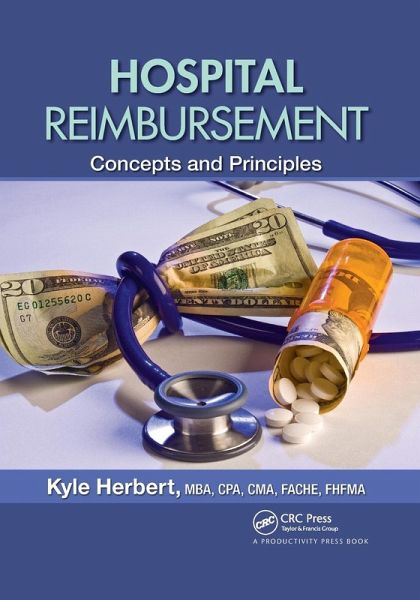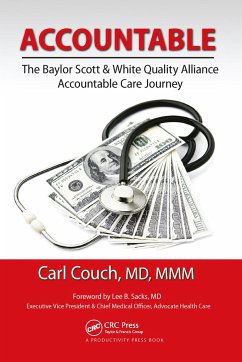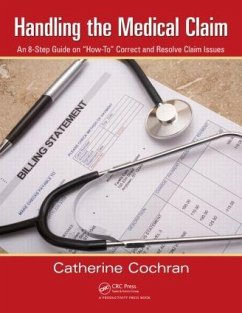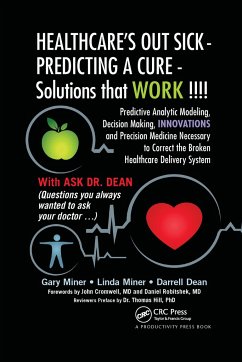
Hospital Reimbursement
Concepts and Principles
Versandkostenfrei!
Versandfertig in 1-2 Wochen
45,99 €
inkl. MwSt.
Weitere Ausgaben:

PAYBACK Punkte
23 °P sammeln!
Due to the countless variables that affect revenue and cost, the hospital reimbursement process is by far the most complex of any industry. Requiring only a basic financial background and a working knowledge of accounting, Hospital Reimbursement: Concepts and Principles supplies a clear understanding of the concepts and principles that drive the revenue cycle within a hospital setting. The book explains the technical aspects of reimbursement in language that is easy to comprehend. It illustrates the complexities of the hospital revenue cycle and explains the Medicare and Medicaid financial mod...
Due to the countless variables that affect revenue and cost, the hospital reimbursement process is by far the most complex of any industry. Requiring only a basic financial background and a working knowledge of accounting, Hospital Reimbursement: Concepts and Principles supplies a clear understanding of the concepts and principles that drive the revenue cycle within a hospital setting. The book explains the technical aspects of reimbursement in language that is easy to comprehend. It illustrates the complexities of the hospital revenue cycle and explains the Medicare and Medicaid financial models in detail. The text also addresses the Medicaid reimbursement methodology, the formulation of the Medicare blend rate, the computation of both DSH and IME, as well as other third-party payers. It also: Covers the full range of services and procedures for which a hospital can receive reimbursement Explains the difference between a for-profit and not-for-profit hospital Contains chapters devoted to Statements of Operations (Income Statement) and Statements of Financial Position (Balance Sheet) Examines governmental cost reporting-including Worksheets A, A-6, A-8, A-8-2, B-1, B Part 1, C Part 1, D-3, D-5, and E Part A Supplying readers with a foundation in coding principles, the text also includes a model for calculating the financial impact of variations in patient length of stay. It discusses the DRG and APC reimbursement models and details the computation of an outlier payment. In addition, it walks the reader step-by-step through the creation of a mock Medicare cost report for a sample hospital.














